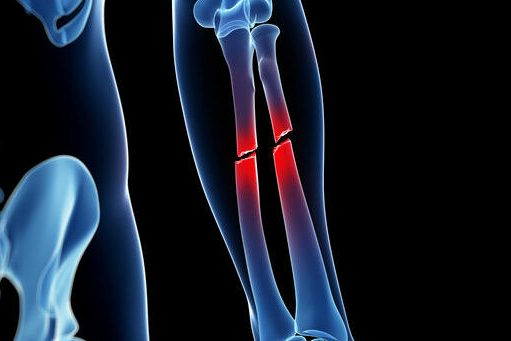A common weight loss surgery for obese teenagers called sleeve gastrectomy has damaging effects on bones, according to a new study.
“Childhood obesity is a major public health problem that has increased over the past 10 years,” lead researcher Miriam A. Bredella, MD, said. She is professor of radiology at Harvard Medical School in Boston, Massachusetts, and vice president of the Department of Radiology at the Massachusetts General Hospital in Boston. “Sleeve gastrectomy is the most common bariatric surgery procedure performed on children and adults.”
What is sleeve gastrectomy?
In a sleeve gastrectomy, approximately 75% of the stomach is removed to restrict food intake and induce weight loss. It results in a round stomach that takes the shape of a tube or sleeve. The number of sleeve gastrectomy procedures performed on teenagers increased by 100 times between 2005 and 2014.
“In adults, bariatric surgery can have long-term effects on the bones, leading to an increased risk of fractures,” Dr. Bredella affirmed. “We wanted to determine the effects of sleeve gastrectomy on teenagers during the crucial years in which bone mass builds up.”
The study examined 52 teenagers with moderate to severe obesity, 26 of which underwent sleeve gastrectomy. The other 26 were in the control group. The average age was 17.5 years and the average body mass index (BMI) was 45. A BMI of 30 or more is considered obese. Thirty-eight of the study participants were female. Before and 12 months after the sleeve gastrectomy procedure (or no surgery), patients underwent a quantitative CT scan of their lumbar spine to quantify volumetric bone mineral density. Quantitative CT is a high-precision technique to detect changes in volumetric bone mineral density after an individual loses a dramatic amount of weight.
The findings
Recent studies have shown that bone marrow fat responds to changes in nutrition and can serve as a biomarker of bone quality. Hence, patients underwent proton MRI spectroscopy to quantify lumbar spine bone marrow fat. One year after the surgery, the teenagers who underwent sleeve gastrectomy lost 34 (+/- 13) kg or 75 (+/- 28) pounds, while there were no significant weight changes in the control group. Compared to controls, sleeve gastrectomy patients showed a significant increase in bone marrow fat and a decrease in bone density in the lumbar spine.
“Teenagers who underwent sleeve gastrectomy had bone loss and increased bone marrow fat, despite the marked body fat loss,” Dr. Bredella said. “While weight-loss surgery is successful for weight loss and the improvement of metabolic disorders, it has negative effects on the bones.”
Dr. Bredella said bone density loss was expected after a sleeve gastrectomy because carrying more weight strengthens the bones. In addition to bone density loss, other effects of this weight loss surgery include a disruption of hormones and nutrients essential to bone health.
“We need to identify the mechanisms that will help prevent bone loss in these patients and make obese teenagers more aware of bone health,” Dr. Bredella said. “Adolescence is a critical time for the buildup of bone mass, and any process that interferes with bone buildup during this time can have disastrous consequences in the future.”
Reference: Radiological Society of North America
Link: https://www.sochob.cl/web1/la-cirugia-popular-para-bajar-de-peso-en-adolescentes-debilita-los-huesos/
Date: November 27th, 2020
Source: https://www.sciencedaily.com
Nutrigenomics Institute is not responsible for the comments and opinions included in this article






